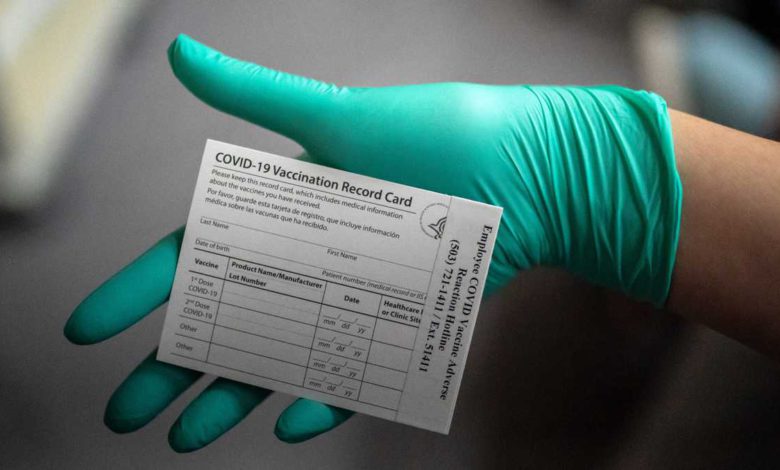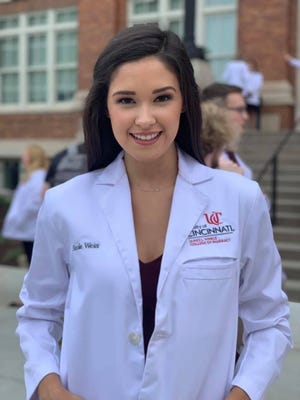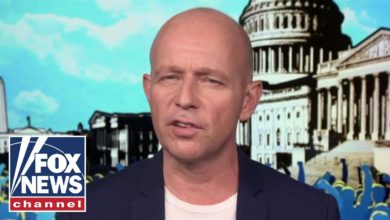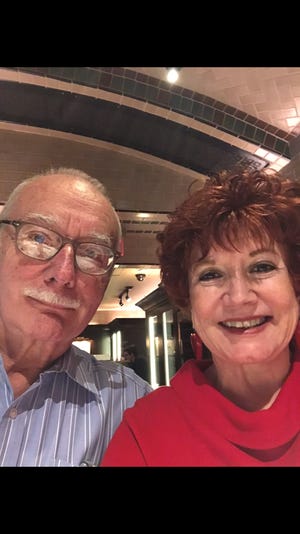

A licensed naturopathic doctor from Northern California was arrested Wednesday for running a fake COVID-19 immunization and vaccine card scheme, according to an announcement from the U.S. Department of Justice.Juli A. Mazi, 41, faces one charge of wire fraud and one count of false statements related to health matters, according to the Justice Department. Prosecutors say the Napa woman tried to sell homeoprophylaxis immunization pellets and fake COVID-19 immunization cards that made it appear as though her customers received the Moderna vaccine. This is the first federal criminal fraud prosecution related to these fraudulent immunizations and vaccine record cards, according to prosecutors."This defendant allegedly defrauded and endangered the public by preying on fears and spreading misinformation about FDA-authorized vaccinations, while also peddling fake treatments that put people's lives at risk. Even worse, the defendant allegedly created counterfeit COVID-19 vaccination cards and instructed her customers to falsely mark that they had received a vaccine, allowing them to circumvent efforts to contain the spread of the disease," said Deputy Attorney General Lisa O. Monaco. "According to the complaint, instead of disseminating valid remedies and information, Juli Mazi profited from unlawfully peddling unapproved remedies, stirring up false fears, and generating fake proof of vaccinations. We will act to protect trust in the medical developments that are enabling us to emerge from the problems presented by the pandemic," said Acting US Attorney Stephanie M. Hinds.CNN is seeking comment from Mazi.If convicted, Mazi could face 20 years in prison for wire fraud and five years for making false statements in addition to a $250,00 fine for each charge and three years of supervised release, according to the Department of Justice.Mazi's scheme included immunization pelletsIn April, a person called the Health and Human Services Office of the Inspector General hotline to make a complaint, according to the criminal complaint. Mazi sold family members homeoprophylaxis immunization pellets that contained the COVID-19 virus, which she claimed "would create an antibody response in the immune system," the complainant said. The complainant also said their family hadn't received injections for any of the three authorized COVID-19 vaccines.The pellets order arrived with vaccination cards and instructions on the dosage and how to fill out the cards. Mazi told the family "to mark the cards to falsely state that they received the Moderna vaccine on the date that they ingested the purported COVID-19 homeoprophylaxis immunization pellets," according to the complaint.In a recorded phone call with the complainant in June, Mazi said a remedy could be made for practically any infectious disease that exists through a process called "homeoprophylaxis," which involved introducing a tiny amount of a disease into the body to provoke immunity," according to the criminal complaint."So the remedy for COVID has been available since the beginning, and I've been offering that," Mazi told the complainant, according to a record of the call detailed in the criminal complaint.She also told the caller the dosage of the remedy she offered was the same "for babies" and asked the caller if they were interested in discussing immunizations required by the state of California for school children. Mazi said she offered immunizations for school "in the form of homeoprophylaxis remedies," according to the criminal complaint. During this conversation, the caller purchased the pellets for $243, according to the complaint.The criminal complaint details Mazi's scheme to skirt school immunization requirements with false documents. In August 2020, a school employee in Ukiah, in Mendocino County, received an immunization card for a student that listed Mazi's name as the provider. The card was "unusual because it indicated a spacing of the immunizations that did not reflect the typical dosage regimen for the FDA-approved vaccines referenced on the card," said the complaint.One other complainant called the Health and Human Services hotline regarding the COVID-19 homeoprophylaxis immunization pellets and said she'd learned about Mazi from her significant other, according to the complaint. The significant other's roommate had taken the pellets and felt sick, describing symptoms as "gastrointestinal discomfort and an overall feeling of being unwell," according to the complaint.Financial records show Mazi received about $221,817 in 1,242 transactions from January 2020 to May 21, 2021, according to the complaint. While a majority did not indicate the purpose of the transaction, the document states that at least 25 transactions indicated they were for COVID treatments, amounting to $7,653 while approximately 34 other transactions denote homeoprophylaxis treatment.
A licensed naturopathic doctor from Northern California was arrested Wednesday for running a fake COVID-19 immunization and vaccine card scheme, according to an announcement from the U.S. Department of Justice.
Juli A. Mazi, 41, faces one charge of wire fraud and one count of false statements related to health matters, according to the Justice Department. Prosecutors say the Napa woman tried to sell homeoprophylaxis immunization pellets and fake COVID-19 immunization cards that made it appear as though her customers received the Moderna vaccine. This is the first federal criminal fraud prosecution related to these fraudulent immunizations and vaccine record cards, according to prosecutors.
"This defendant allegedly defrauded and endangered the public by preying on fears and spreading misinformation about FDA-authorized vaccinations, while also peddling fake treatments that put people's lives at risk. Even worse, the defendant allegedly created counterfeit COVID-19 vaccination cards and instructed her customers to falsely mark that they had received a vaccine, allowing them to circumvent efforts to contain the spread of the disease," said Deputy Attorney General Lisa O. Monaco.
"According to the complaint, instead of disseminating valid remedies and information, Juli Mazi profited from unlawfully peddling unapproved remedies, stirring up false fears, and generating fake proof of vaccinations. We will act to protect trust in the medical developments that are enabling us to emerge from the problems presented by the pandemic," said Acting US Attorney Stephanie M. Hinds.
CNN is seeking comment from Mazi.
If convicted, Mazi could face 20 years in prison for wire fraud and five years for making false statements in addition to a $250,00 fine for each charge and three years of supervised release, according to the Department of Justice.
Mazi's scheme included immunization pellets
In April, a person called the Health and Human Services Office of the Inspector General hotline to make a complaint, according to the criminal complaint. Mazi sold family members homeoprophylaxis immunization pellets that contained the COVID-19 virus, which she claimed "would create an antibody response in the immune system," the complainant said. The complainant also said their family hadn't received injections for any of the three authorized COVID-19 vaccines.
The pellets order arrived with vaccination cards and instructions on the dosage and how to fill out the cards. Mazi told the family "to mark the cards to falsely state that they received the Moderna vaccine on the date that they ingested the purported COVID-19 homeoprophylaxis immunization pellets," according to the complaint.
In a recorded phone call with the complainant in June, Mazi said a remedy could be made for practically any infectious disease that exists through a process called "homeoprophylaxis," which involved introducing a tiny amount of a disease into the body to provoke immunity," according to the criminal complaint.
"So the remedy for COVID has been available since the beginning, and I've been offering that," Mazi told the complainant, according to a record of the call detailed in the criminal complaint.
She also told the caller the dosage of the remedy she offered was the same "for babies" and asked the caller if they were interested in discussing immunizations required by the state of California for school children. Mazi said she offered immunizations for school "in the form of homeoprophylaxis remedies," according to the criminal complaint. During this conversation, the caller purchased the pellets for $243, according to the complaint.
The criminal complaint details Mazi's scheme to skirt school immunization requirements with false documents. In August 2020, a school employee in Ukiah, in Mendocino County, received an immunization card for a student that listed Mazi's name as the provider. The card was "unusual because it indicated a spacing of the immunizations that did not reflect the typical dosage regimen for the FDA-approved vaccines referenced on the card," said the complaint.
One other complainant called the Health and Human Services hotline regarding the COVID-19 homeoprophylaxis immunization pellets and said she'd learned about Mazi from her significant other, according to the complaint. The significant other's roommate had taken the pellets and felt sick, describing symptoms as "gastrointestinal discomfort and an overall feeling of being unwell," according to the complaint.
Financial records show Mazi received about $221,817 in 1,242 transactions from January 2020 to May 21, 2021, according to the complaint. While a majority did not indicate the purpose of the transaction, the document states that at least 25 transactions indicated they were for COVID treatments, amounting to $7,653 while approximately 34 other transactions denote homeoprophylaxis treatment.
Source link








